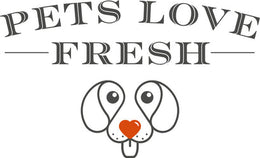Beagle Breed Guide: Temperament, Training, Grooming & Nutrition
In this article, we will explore everything you need to know about Beagles, from their temperament and training needs to grooming tips and nutritional requirements. Whether you're a proud Beagle owner or considering adding one to your family, this guide has you covered.
What is a Beagle?
Beagles are small to medium-sized hounds originally bred for hunting hare. Known for their exceptional sense of smell and tracking abilities, Beagles have a rich history dating back to ancient Greece. They were developed primarily in England and have become one of the most popular dog breeds worldwide due to their friendly and gentle nature.
What Were Beagles Bred For?
Beagles were originally bred as scent hounds for hunting small game, especially rabbits. Their incredible noses, stamina, and teamwork made them a favourite among hunters. Today, those same traits show up as curiosity, determination, and an impressive ability to sniff out just about anything.
Beagle Key Facts
- Life Expectancy: 12-15 years
- Average Full Grown Height: 13-15 inches
- Average Weight: 20-30 pounds
- Coat Type: Short and dense
- Coat Colours: Various, including tri-color (black, white, and brown), lemon, red, and white
- Temperament: Friendly, curious, and energetic
- Hypoallergenic: No
- Origin: England
How Long do Beagles Live?
Beagles typically enjoy a long, healthy life of around 12–15 years. Good nutrition, routine vet care, and plenty of exercise go a long way toward keeping them in great shape well into their senior years.
Types of Beagles
While there is generally one recognised type of Beagle, they are normally one of two size variations:
13-Inch Beagle
- Typically weighs less than 20 pounds
- Ideal for small homes or apartments
15-Inch Beagle
- Weighs between 20-30 pounds
- Slightly larger, better for homes with more space
Beagle Temperament & Personality Traits
Beagles are known for their friendly and affectionate nature. They are social animals that get along well with children and other pets. However, their strong hunting instincts mean they can have a high prey drive and may chase smaller animals. Beagles are also prone to separation anxiety and can become destructive if left alone for long periods.
Are Beagles Easy to Train?
Beagles are bright, motivated, and food-driven - a trainer’s dream with the right approach. Their independent streak comes from their scent-hound heritage, so patience and consistency pay off. Short, engaging sessions (ideally with treats involved) tend to bring out their best.
Are Beagles Good Family Dogs?
Absolutely. Beagles are friendly, affectionate, and endlessly patient, making them well-suited for families with children. They thrive on companionship and often become the social heartbeat of the home, equal parts playmate and cuddle buddy.
Do Beagle Dogs Bark a Lot?
Beagles can be vocal, and they’re not shy about letting you know when something catches their attention. Expect a mix of barks, howls, and the classic “bay.” Good training and plenty of mental stimulation help keep the noise in check.
Are Beagles Good With Cats?
Many Beagles can live happily with cats, especially if introduced early and gradually. Their hunting background means supervision is important at first, but with proper socialisation, coexistence, and even friendship, it is very achievable.
Beagle Coat Types & Colours
Beagles have a short, dense coat that comes in various colours, including tricolour (black, white, and brown), lemon, red, and white. Their coats are easy to maintain and require minimal grooming.
Do Beagles Shed?
Yes, Beagles do shed. Regular brushing can help manage shedding and keep their coat healthy. They are low-maintenance when it comes to grooming, needing only occasional baths and regular ear cleaning to prevent infections.
Are Beagles Hypoallergenic?
No. Beagles are not hypoallergenic. They shed moderately and produce dander like most breeds. Regular brushing and good coat care can help reduce allergens, but they aren’t the right match for allergy-sensitive households.
Beagle Health Issues
Beagles are generally healthy, but they can be prone to certain health issues:
Hip Dysplasia
A genetic condition where the hip joint doesn’t fit into the hip socket properly, leading to arthritis and pain.
Epilepsy
A neurological disorder causing seizures, which can often be managed with medication.
Hypothyroidism
A condition where the thyroid gland doesn’t produce enough hormones, leading to weight gain and lethargy.
Ear Infections
Due to their floppy ears, Beagles are prone to ear infections. Regular cleaning can help prevent this issue.
How Much Exercise Does a Beagle Need?
Beagles are energetic dogs that require regular exercise to stay healthy and happy. They need at least an hour of exercise per day, which can include walks, playtime, and mental stimulation. Beagles enjoy outdoor activities and have a keen sense of smell, making scent games and tracking activities ideal for them.
Beagle Diet & Nutrition
Proper nutrition is essential for maintaining a Beagle’s health. They should be fed high-quality dog food that meets their nutritional needs. Beagles are prone to obesity, so it’s important to measure their food portions and avoid overfeeding.
Pets Love Fresh is an excellent choice, as it contains no preservatives, no cheap fillers that can cause allergies, is gently cooked, and created by a team of nutritionists, dieticians, vets, and pet owners. Fresh dog food is important in any dog's diet. It provides complete nutrients and vitamins to keep your dog healthy, made with real meat, fresh from British farms.
Explore our range of fresh dog food and give your Beagle the best nutrition possible.


